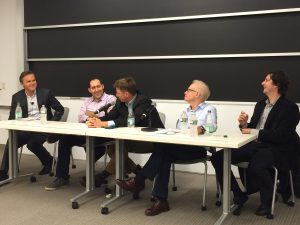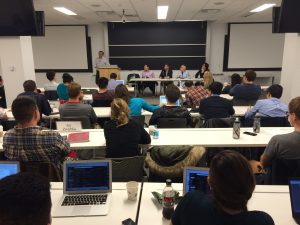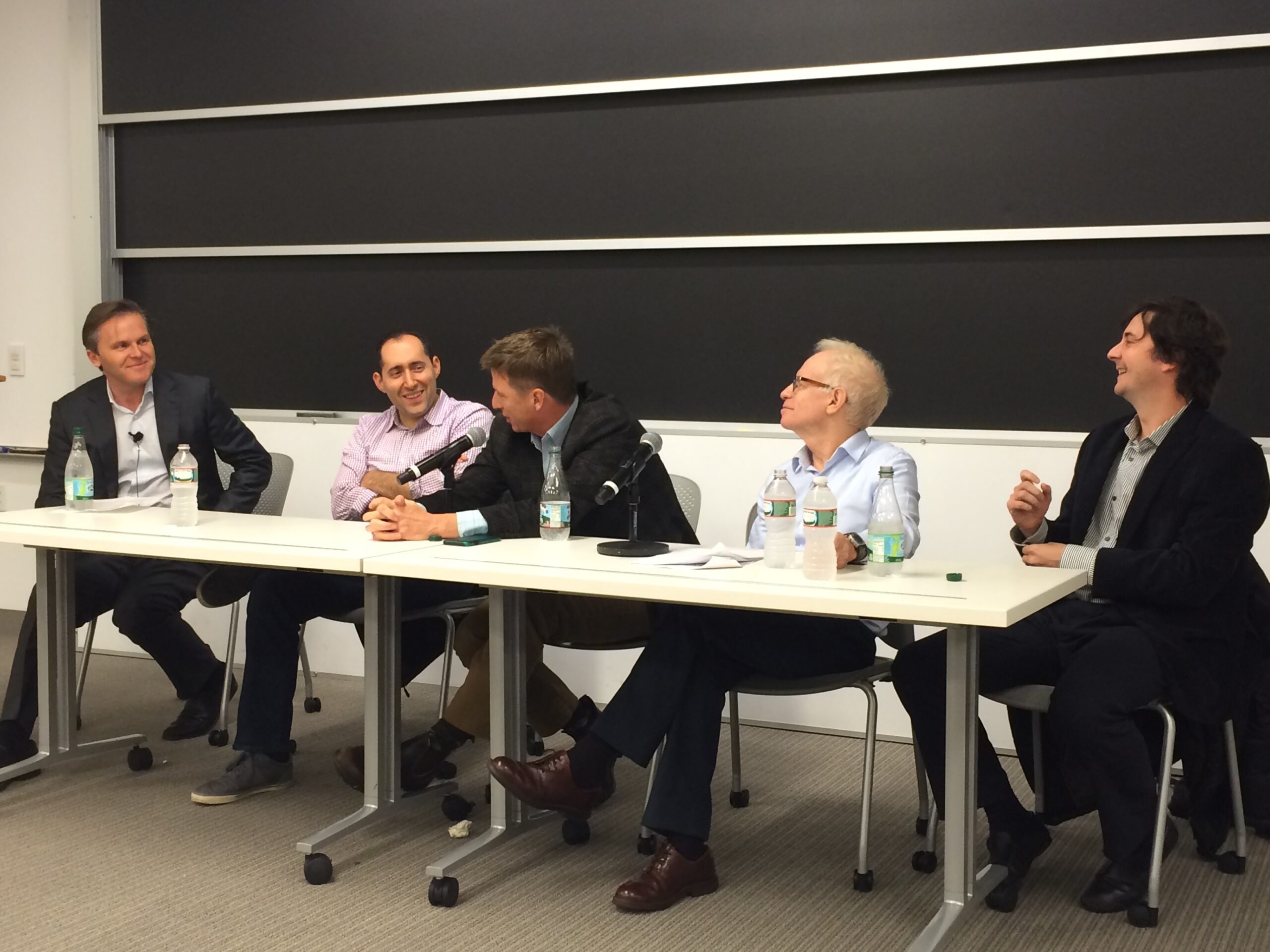 By Tommy Tobin, Editor in Chief
By Tommy Tobin, Editor in Chief
Entrepreneurship is about bold ideas as well as the skill and the drive to see them through. For HKS Professor Carl Byers, entrepreneurship—whether in the private or social sector—is about the numbers. In his course, “Entrepreneurial Finance,” Byers teaches students the ins and outs of balance sheets, profit/loss statements, and cash-flows.
On Monday, November 24th, Byers hosted a panel of four successful entrepreneurs and financers from not-for-profit and private ventures. Like HKS Professor Dick Cavanagh, Byers teaches students looking to begin ventures across sectors. Both professors use case studies, speakers, and examples from for-profit and not-for-profit enterprises to enrich student learning.
The panel’s first speaker was Jonathan Bush, CEO of athenahealth, co-author of Where Does It Hurt?: An Entrepreneur’s Guide to Fixing Health Care. After attending HBS, Bush co-founded athenahealth which serves as a business services provider for medical professionals.
Second up was last year’s CPL Gleitzman International Activist Award Winner, Sasha Chanoff. Chanoff serves as Executive Director of RefugePoint and was a former Echoing Green and Ashoka Fellow. He provided a not-for-profit perspective on the panel.
Eric Paley, known as an angel investor for providing first funds to entrepreneurs, was third to speak. An HBS alum, Paley is a co-founder and managing partner of Founder Collective, an early-stage venture capital fund. He was among the early investors in behavioral economics start-up OPOWER.

The event sought to provide lessons learned from successful entrepreneurs as the students think about launching their own ventures. For the organizers, entrepreneurship –whether in the social or for-profit sector—is an excellent way to “Ask What You Can Do.”
